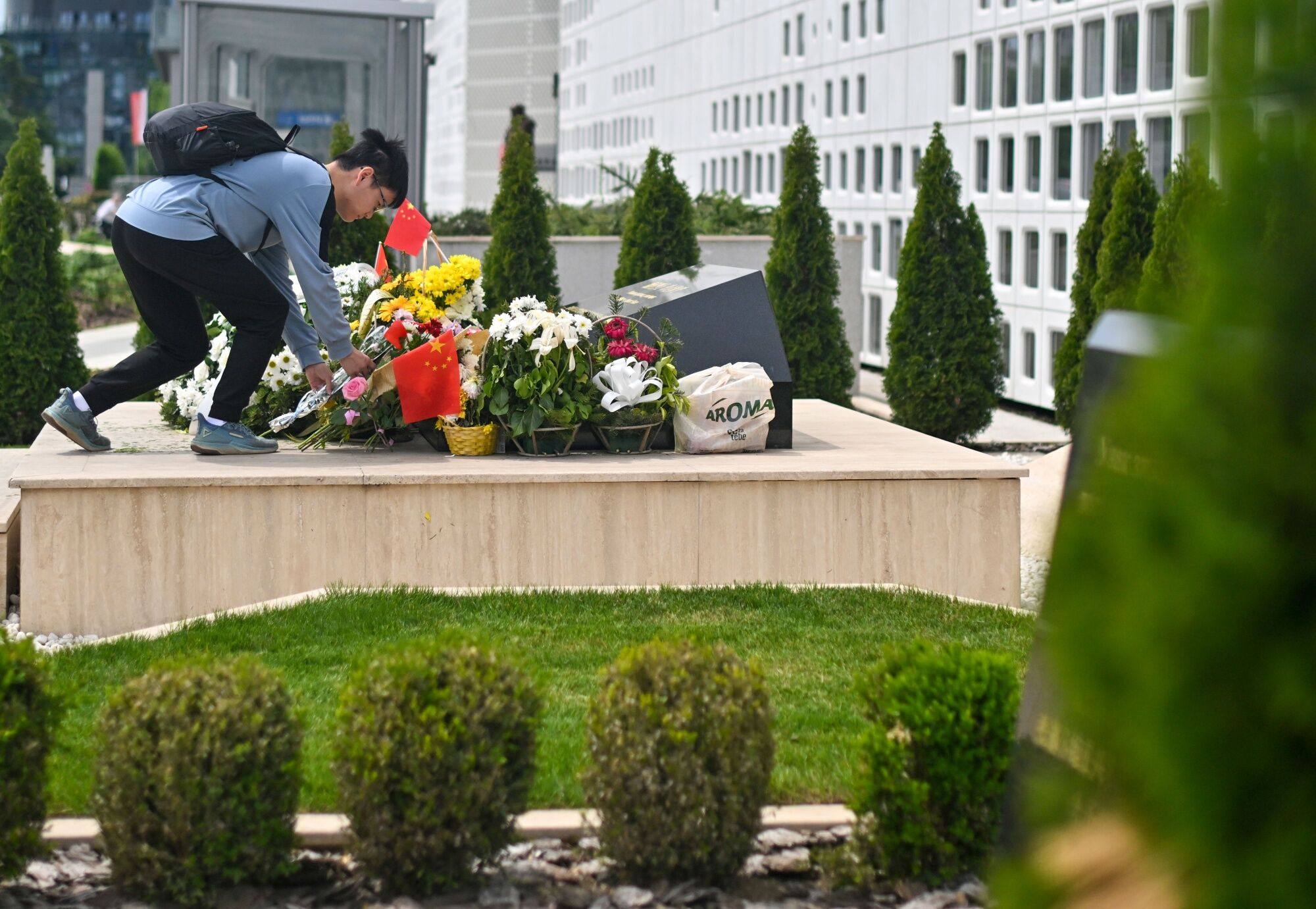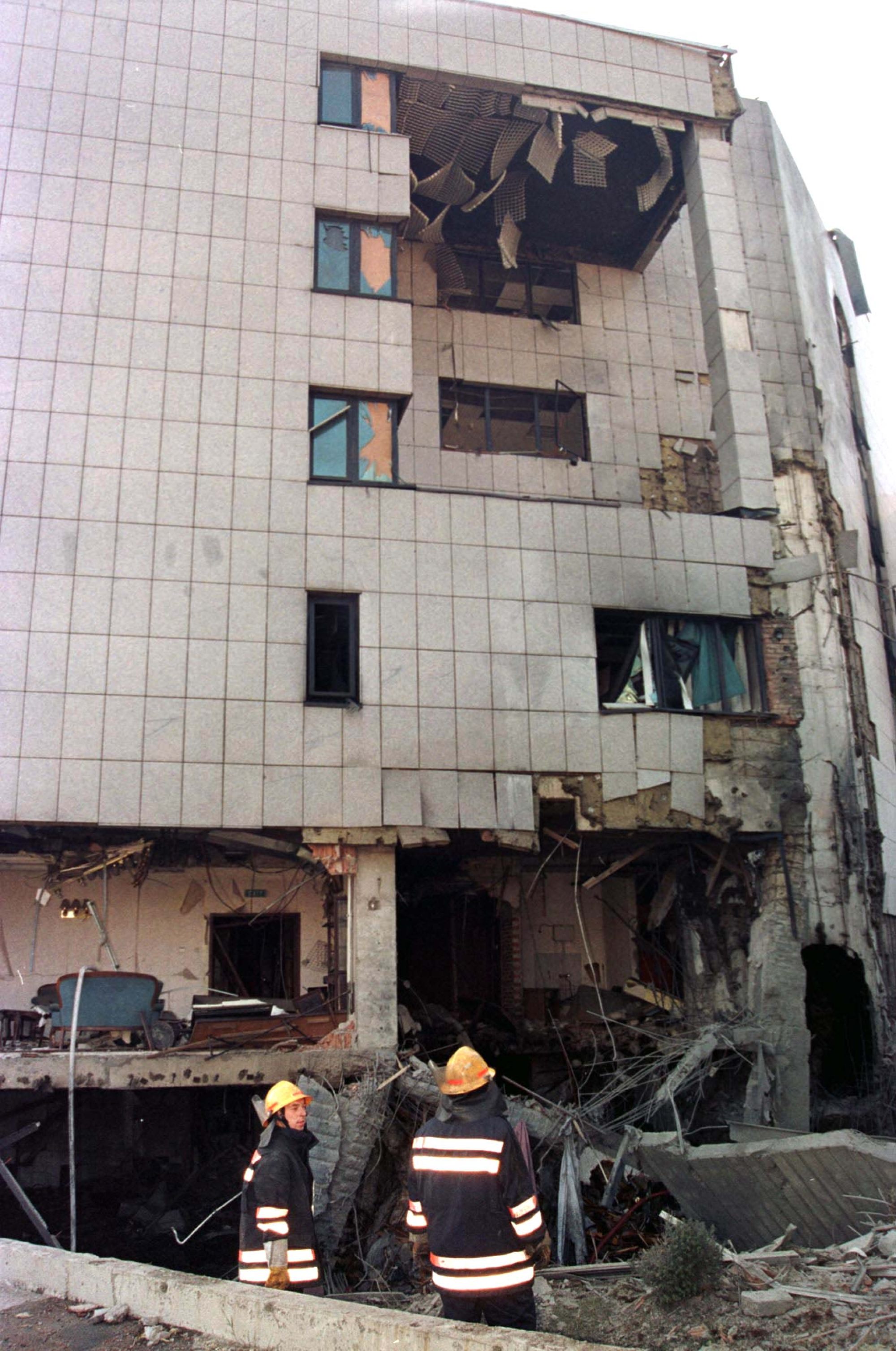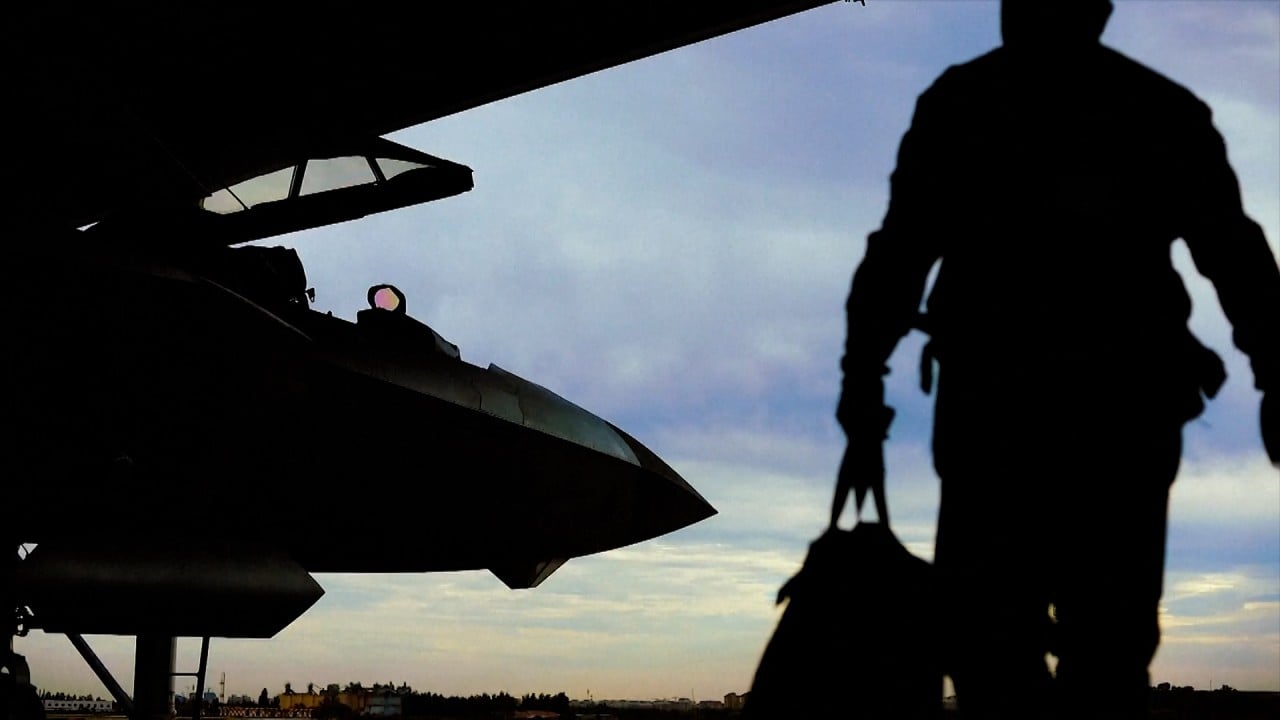From the moment five 2,000-pound guided bombs from an American B-2 stealth bomber hit its embassy in Belgrade, China’s security perceptions and defence policies changed forever.
The United States said the strike was a mistake. For China, it was a painful and humiliating slap in the face. A wake-up call. A turning point towards an era of strategic suspicion and distrust.
It was also a display of power, and a catalyst for China’s military modernisation reforms and a demonstration of the country’s urgent need for technological development.
Three people were killed when the bombs struck in the middle of the night on May 7, 1999, during the US-led Nato air campaign against the then Yugoslavia, and 25 years later the memory of that humiliation is still vividly remembered by the Chinese leadership.
“This we should never forget,” Chinese President Xi Jinping, who is on a state visit to Serbia, wrote in an article on the incident that was published in the Serbian newspaper Politika on Tuesday.

From 1999, China’s annual defence budget went through more than a decade of a double-digit increases, and continues to rise each year at a higher level of GDP. The spending spree turned the world’s second-largest economy into its No 2 military spender, behind only the US.
“The bombing of the Chinese embassy in Belgrade certainly played a significant role in the subsequent increase in China’s military budget,” said Nenad Stekić, research fellow on the Chinese military at Serbia’s Institute of International Politics and Economics (IIPE).
The People’s Liberation Army saw reductions in its size and budgets during the 1980s and 1990s, just like its counterparts in Yugoslavia, he noted.
Then the Kosovo war and the bombing in Belgrade served as a “wake-up” call, prompting Beijing to prioritise military modernisation and allocate greater resources to improve defences, Stekić said.
Retired PLA colonel Yue Gang recalled that the Chinese leadership had been shocked by the hi-tech weaponry exhibited in the 1991 Gulf war and launched an effort to transition its forces into a modern military.
However, the financial difficulties of the decade saw the PLA’s budget hit a historical low in 1997, to only 1.03 per cent of GDP. “Our military budget was even lower than Taiwan at that point. The modernisation was hard to move forward,” Yue said.
According to Yue, the embassy strike was a factor in changing the situation. “The bombing was a stabbing into our flesh. The sense of humiliation could turn into courage, and it greatly accelerated the reforms.”
Ni Lexiong, a Shanghai-based military observer, said Beijing was deeply concerned by Nato’s 78-day carpet bombing of Yugoslavia, despite possessing a generally larger and more advanced military than the former communist nation.
For the first time in history, Nato had demonstrated how to subdue a country using air strikes alone, he said.
According to Ni, “this operation, following the Gulf war, contributed to an earlier, rapid and full launch of China’s military modernisation”.
“Nato provided some good references in many aspects, such as development strategies, weapon selections, and military technologies, as well as practical applications of them.”
The operation’s display of power shook the world, with its use of the B-2 – at that stage the world’s most advanced B-2 intercontinental stealth bomber and far ahead of China’s military development.
A quarter of a century later, Beijing is still developing its first homemade bomber with intercontinental capacity.
According to Yue, the PLA was specifically impressed by the precision-guided weapons, including the B-2’s joint direct attack munitions, that penetrated several floors of the embassy building from different angles, even ending up in the basement.
“Precision-guided weapons are so powerful that we must master them,” he said.
A full upgrade of China’s air defence system was also prioritised – early warning satellites, surveillance network, cruise-missile interception, anti-stealth radar, and more advanced ground-to-air missiles, Yue added.
Shift of strategy
According to Stekić, the Belgrade embassy bombing also profoundly changed China’s perception of its overall security situation, prompting a reassessment of potential threats and its long-held defensive strategy of minimal involvement in international conflicts or interventions.
“[The embassy bombing] underscored the importance of asserting China’s power on the global stage to protect its interests and sovereignty … Since then, China has adopted a more assertive approach in its security policies, actively shaping regional and global security dynamics,” he said.
China’s changed approach is evident in its increased military presence and participation in peacekeeping operations, counterterrorism efforts, and regional security forums.
Beijing has also pursued a proactive diplomacy agenda, forging strategic partnerships and alliances to safeguard its security interests and promote its vision of a multipolar world order.

According to Aleksandar Mitić, research fellow at IIPE, the Belgrade incident also served as a “turning point” in China’s relationship with the US and other Western powers, creating distrust and suspicion of their intentions.
“China became particularly concerned about the establishment of ‘coalitions of the willing’ with direct consequences for interventions and other Western interference in China’s internal affairs or neighbourhood in the Asia-Pacific,” he said.
“China-US trust has never recovered.”
Mitić, an Agence France-Presse correspondent in Kosovo and Belgrade during the war, said that from then on, China began to create its own role in the global media ecosystem, aimed at balancing Western dominance.
Stekić pointed out that the embassy bombing prompted China to pursue closer strategic partnerships with countries that shared a similar interest in countering perceived Western hegemony.
In particular, the incident helped to forge a strong bond between China and Serbia, contributing to a deepening of cooperation in various fields, including economic, political, and military spheres, he said.
The bombing triggered widespread protests across China and has been commemorated ever since as part of its “national humiliation” and shared historical grievance.
The nationalist sentiment stirred by the event was likely to have increased public support for a stronger military and more assertive foreign policy stance, Stekić said.
The F-117 rumours
For 25 years, the Belgrade bombing has been a focus for speculation and conspiracy theories. The Chinese – and many others – have never been convinced by the US explanation that the strike was a mistake, based on an outdated map.
One of the best known theories centres on a US stealth aircraft that was shot down by the Yugoslav air defence a few weeks earlier.
The F-117 Nighthawk – the world’s first operational stealth fighter with cutting-edge radar evasion ability – came down in a field, where local farmers collected debris as souvenirs.
Parts of the wreckage – including its left wing with US Air Force insignia – are still on public display at Belgrade’s aviation museum.
There were rumours that China was interested in studying the technology from the recovered wreckage, with some versions claiming that the embassy had become an air strike target because it was serving as temporary storage for some of the parts.
Later that year, The Guardian newspaper reported that the embassy was “deliberately” bombed because Nato had discovered it “was being used to transmit Yugoslav army communications”.
Citing anonymous military and intelligence sources, the report suggested that the Chinese were helping Slobodan Milosevic – who went on to become president of Serbia – possibly in exchange for the stealth technology from the downed US F-117.
China denied the report, while Nato insisted the bombing was “a terrible mistake”. Nevertheless, stories about the downed F-117 resurfaced more than a decade later, when China unveiled the J-20, its first stealth fighter, in 2011.
US media reports suggesting that the Chinese had acquired and reverse-engineered the F-117’s stealth technologies have repeatedly resurfaced in the following years.
But Yue finds the F-117 theory “unlikely”, pointing out that if an embassy was being used for military purposes, it would be open to a diplomatic incident or even physical attack.
“If that was a credible story, the US would surely have used it as its defensive argument, but they didn’t even mention it,” he said.
Yue also noted that if Chinese intelligence had wanted to study the wreckage’s advanced radar-absorbent coating, it would not have been difficult to obtain a small piece of the debris through civilian channels without involving the embassy or putting it at military risk.



